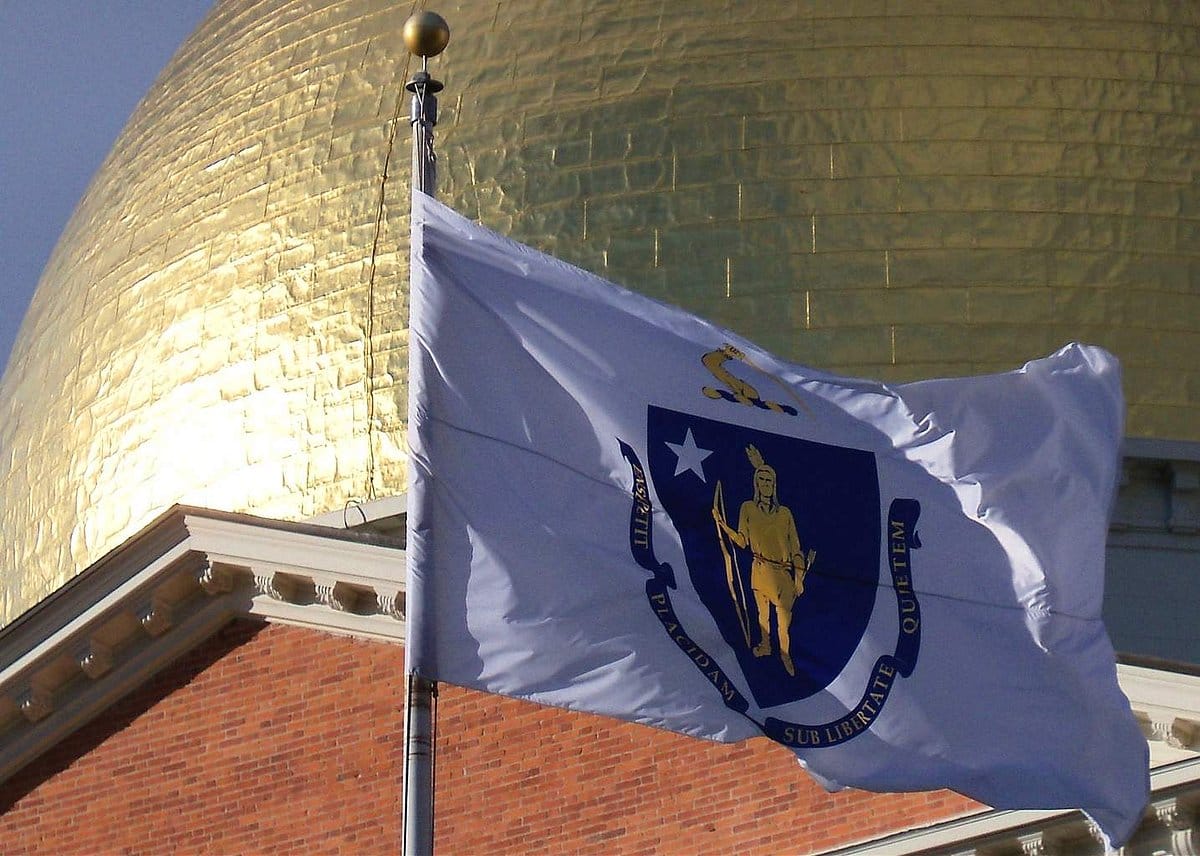Push Under Way On Beacon Hill To Dump State Flag; Guess Why?

BOSTON — A push is under way on Beacon Hill to change the state flag because of its depiction of a Native American man tilting his arrow towards the ground as an apparent sign of pacifism and submission, while a colonial-style broadsword wielded by a white man hovers above his head.
State Representative Byron Rushing (D-Boston) has introduced legislation calling for the "creation of a special commission relative to the seal and motto" of the commonwealth. On Tuesday the Joint Committee on State Administration and Regulatory Oversight heard testimony from several flag opponents, including a Weymouth woman who has previously led efforts to force the Cleveland Indians baseball team to ditch its name and Chief Wahoo mascot.
